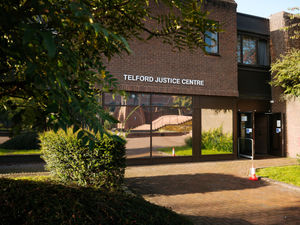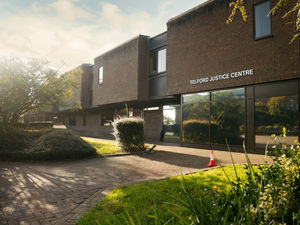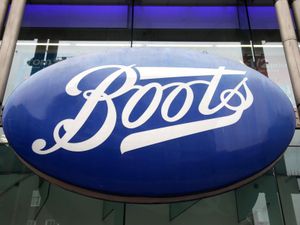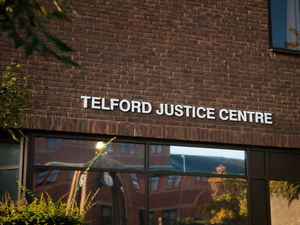Smoking out tobacco smugglers
It is the cat-and-mouse battle which often goes unseen. But the scourge of illegal and potentially dangerous cigarettes is a problem which continues to grow and has connections to the murky underworld of drugs and organised crime.
More than six million illicit cigarettes were taken off the streets of the West Midlands last year, along with 350kg of loose or rolling tobacco.
But despite the impressive haul of seized ciggies, worth £1.3 million, police and trading standards chiefs fighting the frauds are facing an increasing battle to keep up with the amount of dodgy fags which make it onto our shores and into our shops.
Crooks are going to new lengths of sophistication to hide their illicit products. Cigarettes and tobacco have been found in pretty much every nook and cranny in shops, stashed inside doors and in hidden compartments in floors, ceilings and walls.
See also:
There are two main types of illegal cigarettes which are sold under the counter in the West Midlands region.
There are cigarettes, both the well-established brands and lesser known names, which are bought cheaply in eastern Europe and Asia and smuggled in to be sold at something close to UK prices, earning criminals a huge profit while avoiding paying tax on them.
Then there are the counterfeit cigarettes – the fakes. Nobody would suggest smoking is good for your health at the best of times, but officers have encountered horrifying ingredients inside some of these smuggled products.
Tony Shore, trading standards manager at Staffordshire Council, leads the fight against illicit tobacco and cigarettes in the county.
He says it is becoming a growing problem, and one that is a challenge for his team to stay on top of.
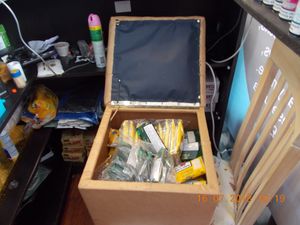
He said: “Tests are done on them and we have found all sorts of stuff. We have had examples where they have contained rat droppings and all sorts of chemicals.
“Most people accept smoking is bad for your health but some tobacco on offer illicitly is even worse for your health.
“It is manufactured in uncontrolled situations and you don’t know what’s in it.”
As alarming as the potential health hazards is who – and what – money spent on these cheap, and for that reason often attractive, cigarettes and tobacco is funding.
Mr Shore says those involved in the distribution of these products are often found to have links to other serious organised crime.
He said: “At the top end of the scale people are part of organised crime. There have been many who are mixed up in other stuff. When somebody is buying this stuff they don’t think about it.
“One of the things they need to be aware of is the money is going to fund other sorts of stuff, drugs and prostitution.”
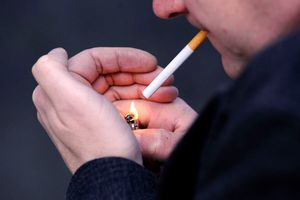
Another concern is the availability of these cigarettes to children.
Word spreads in communities and young teens not old enough to buy the real thing often know where they might be able to get their hands on some, regardless of the dangers.
Mr Shore said: “If someone is engaged in selling illicit tobacco the likelihood is they are not going to be concerned about who they are selling it to. Generally speaking if you have got someone running a licensed premises they won’t sell it to kids but if you have got someone prepared to sell illicit tobacco they are not going to be concerned about who they are selling it to.
“And if you have got someone taking legitimate trade away from other people the corner shop doing things properly is going to suffer as well. It is taking money from communities and putting it who knows where.
“People will say ‘what’s the harm getting some cigarettes in there?’ but there’s a lot more beneath it. It’s like an iceberg.
“We have got good reason to believe it is organised.
“It’s not just the odd person bringing a few packs of hand-rolling tobacco, it’s serious criminal activity and a lot of it is organised really well.”
So how to stop it? It’s the question that plagues Mr Shore and his team every day.
But, like drugs, something so lucrative and widespread will be difficult to eradicate completely.
The job of the team is to gather intelligence and use all the tools at their disposal to try and disrupt as much activity as possible.
He said: “We work with police, customs and excise, border force and immigration. It’s a partnership.
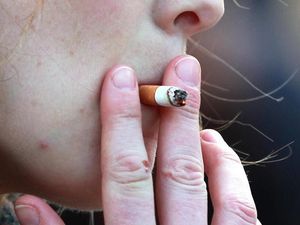
“We exchange information and intelligence. We rely on people within communities to provide information.
“We rely on other people to be our eyes and ears on the ground. Most people know where dodgy things are happening, most people are aware of what is going on in the community.”
Prosecutions continue – in March a Telford man was given a community order for 14 different offences relating to the possession and distribution of counterfeit cigarettes, then in May a man from Shrewsbury was convicted of selling pouches of tobacco containing traces of lead across Mid Wales.
Meanwhile in Wolverhampton a shop in Graiseley had its licence suspended in March after officers found 20,540 illegal cigarettes.
And there is one weapon which at times gives the police and trading standards the upper hand and, for all the intricate methods taken to hide illegality, is feared by the criminals – the dogs.
“I’m amazed how effective an animal they are for finding stuff.
“They are trained to identify illicit tobacco and they are one of the biggest helps we’ve got,” Mr Shore said.
“They know the difference between the genuine article and illicit tobacco. One noticed what looked like a car key fob.
“We pressed it and out of the ceiling dropped a compartment with all of this tobacco in there.”
He added: “We are just trying to keep on top of it. We are exchanging all kinds of information.”


